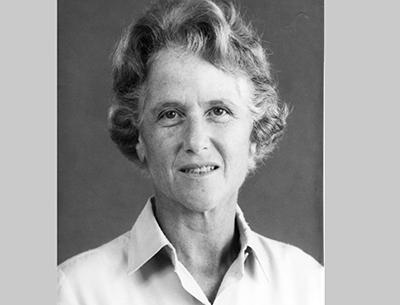Elizabeth L. Eisenstein, Scholar,Tennis Champ

Elizabeth L. Eisenstein, professor emerita at the University of Michigan, a historian of early 19th century France and the French Revolution, who was known for research on the early printing press and was the first resident scholar, in 1979, of the Center for the Book at the Library of Congress, died at home in Washington, D.C., on Jan. 31 at the age of 92. Her family said she had been ill for three weeks.
Dr. Eisenstein, a historian, was the author of many books and articles, beginning with “The First Professional Revolutionist” in 1959. “The Printing Press as an Agent of Change,” a two-volume, 750-page book, first printed in 1979 and reissued in 2012, was considered her most important work. It examined how the printing press caused a cultural shift in Western civilization.
In other professional achievements, Dr. Eisenstein was a fellow of the Center for Advanced Study in the Behavioral Sciences in Palo Alto, Calif., and the Humanities Research Center of the Australian National University. She won fellowships from the Rockefeller Foundation, the Guggenheim Foundation, and the National Endowment for the Humanities. She received an award for scholarly distinction from the American Historical Society in 2003, received an honorary doctorate of humane letters from the University of Michigan in 2004, and the Gutenberg Award from the Gutenberg Society in 2012. She also had been a fellow of the American Academy of Arts and Sciences and the Royal Historical Society.
Although she had a long career as a historian, scholar, and author, she also enjoyed success in tennis competition as Betty Eisenstein. She became a nationally ranked senior women’s tennis player and frequent champion, entering her first senior competition in 1973 just before her 50th birthday. In 1988, she won the Singles World Championship for women in the 70-year-old category, and went on to win three Grand Slam championships, 33 national championships, and 36 straight victories, according to the International Tennis Federation.
Inducted into the Mid-Atlantic Tennis Hall of Fame in 1999, she played her last competitive match in national United States Tennis Association competition in May. She was still playing tennis until very recently, her daughter, Margaret DeLacy, said.
Dr. Eisenstein and her husband, Julian Calvert Eisenstein, had a house on Georgica Road in East Hampton in the 1950s. In their younger years, they were friends with many artists in the East End community, collecting Abstract Expressionist work and supporting the arts through Guild Hall.
“She was highly intelligent, very competitive, not just in tennis but in general, and organized, and, interestingly enough, she loved arranging flowers and would do it beautifully,” said Tinka Topping of Sagaponack. Ms. Topping and Dr. Eisenstein met in 1948 when both were living in Wisconsin. Ms. Topping described her friend as a strong person who “held everything close to her vest,” and “a very good wife and mom.” When they got together, “she’d much rather talk about her victories on the tennis court . . . I wanted to hear all about the University of Michigan, where she was teaching.”
Elizabeth Lewisohn Eisenstein was born on Oct. 11, 1923, in New York City, the third of four daughters of Sam A. Lewisohn and the former Margaret Seligman. She was educated at Vassar College, graduating in 1946, and earned a master’s degree in 1947 and a doctorate in 1953 from Harvard University.
She and her husband met as Harvard graduate students. They married on May 30, 1948. The couple lived in Wisconsin while he studied for a doctorate in physics, and she followed him to Oxford, England, where he did research at the Clarendon Lab, and then to the State College of Pennsylvania, where he had an academic appointment. Despite having a doctorate of her own, she was unable to teach there because of a rule about nepotism, their daughter recalled.
The couple eventually settled in Washington, D.C., where her husband worked at the Bureau of Standards and Dr. Eisenstein worked for a time in the 1940s for Time-Life. She was an adjunct professor at American University from 1959 to 1974.
She accepted a position as chairwoman of the history department of the University of Michigan in 1975, and with her youngest son starting college, she went to Ann Arbor, where she was a professor until 1988, commuting by air to spend weekends in Washington and much of the summer in East Hampton.
Dr. Eisenstein is survived by her husband and two of her children. In addition to Margaret Eisenstein DeLacy of Portland, Ore., a son, Edward Lewisohn Eisenstein of Fayette, Mo., survives. A son, John Calvert Eisenstein, died in 1974; another son died at birth in 1949.
Three grandchildren and two great-grandchildren also survive, as does a sister, Virginia Kahn of Cambridge, Mass. Her older sisters, Dr. Marjorie G. Lewisohn of East Hampton and Joan Cromwell of Quogue, predeceased her.
A memorial service will be held in Washington, D.C., in the fall.
